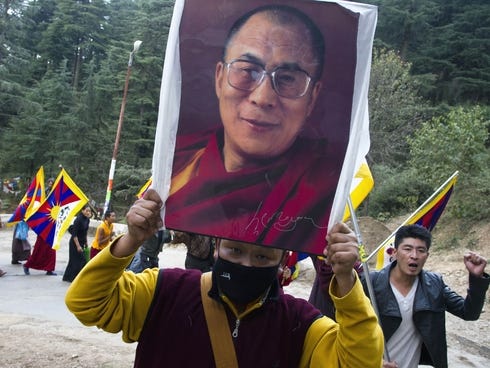By Irving Feng
Impunity Watch Reporter, Asia
CHENGDU, China – A Chinese court in Sichuan province handed down severe sentences to two men who have been linked to 3 cases of self-immolation by Tibetans calling for the return of the Dalai Lama, their exiled spiritual leader.

Lorang Konchok, age 40, and his nephew Lorang Tsering, age 31, were found guilty of intentional homicide by an Aba prefecture court located in Sichuan province. Konchok was given the death penalty with a two-year reprieve on his sentence. In practice, this sentence is usually reduced to life imprisonment.
Konchok has also been stripped of all political rights for life. Lorang Tsering has been sentenced to 10 years in prison and will be stripped of all political rights for 3 years. Both men were charged because authorities say the two attempted to coerce at least 8 individuals into self-immolating.
Out of the 8 individuals the pair allegedly attempted to coerce into committing the self-sacrificing act, only 3 went through with the act. Tibetan activists are protesting the sentences and believe that Chinese officials forced confessions out of the two men during detainment.
Local Chinese news sources reported that Lorang Konchok was detained by authorities last August and confessed that his actions were a result of him following orders from the Dalai Lama and his followers.
There was also evidence of Konchok and Tsering passing along information regarding the self-immolations, including pictures, to contacts abroad that were a part of the Tibetan independence organization.
Lorang Konchok is based out of the Kirti monastery in Aba prefecture, Sichuan Province that borders the Tibet Autonomous Region. This area of Sichuan province has been a hot bed for unrest and has played host to dozens of self-immolations.
After several failed security measures attempting to deter protest, the Chinese government promised to start prosecuting individuals linked to the Tibetan self-immolations. The Lorang pair is part of the first wave to face the wrath of the Chinese government in this crackdown on Tibetan protest.
Another six Tibetans were sentenced by a court in Gansu province to prison terms ranging from 3 to 12 years for their roles in self-immolations at a shopping center in Xiahe. The convicted six were reportedly based out of the Labrang Monastery, a key center for Tibetan Buddhism.
Tibetans have expressed outrage and sorrow for all the deaths, but they also reject the course of action the Chinese government has taken in response to the protests. Tibetans express that they understand the self-immolations because they share the sense of frustration due to a lack of religious freedom and yearn for the return of the Dalai Lama to his rightful place in Tibet.
For further information, please see:
BBC – Tibetans guilty of murder for ‘inciting immolations’ – 31 January 2013
The Guardian – Chinese court convicts two Tibetans for ‘encouraging self-immolation’ – 31 January 2013
Northern Kentucky News – China jails 8 Tibetans in self-immolation cases – 31 January 2013
Reuters – China sentences two Tibetans for “inciting” self-immolations – 31 January 2013
